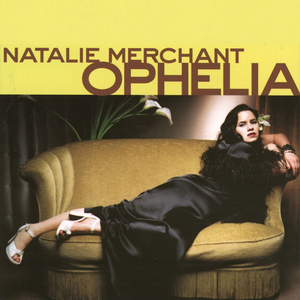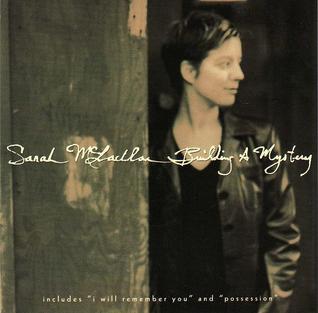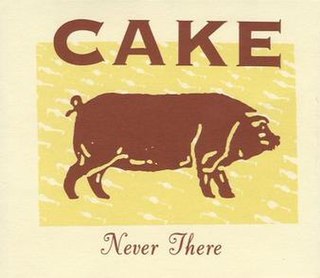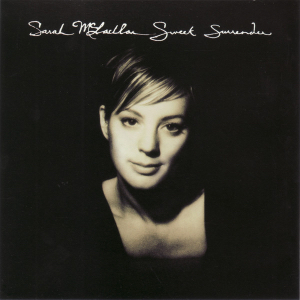
Ophelia is the second studio album by the American singer-songwriter Natalie Merchant, released on May 19, 1998, by Elektra Records. The album was supported by the singles "Kind & Generous" and "Break Your Heart", with the former being the most successful single of the album, reaching the top 20 of the Billboard Hot 100 Airplay Chart. "Break Your Heart" also received single and video treatment. These and the other videos from the album, plus three from Tigerlily, were gathered on a Warner Music Vision home video, also entitled Ophelia. "I love the opportunity to flex my thespian muscle," Merchant quips on it. The album became Merchant's only top ten hit on the Billboard 200, where it peaked at number eight.

"Building a Mystery" is a song by Canadian singer-songwriter Sarah McLachlan from her fourth studio album, Surfacing (1997). At a live performance, Sarah explains the song as being "basically about the fact that we all... have insecurities to hide, and we often do that by putting on a facade." She also goes on to say that "unfortunately, if we just be who we are, that's usually the more attractive and beautiful thing".

"The Way" is a song by American alternative rock band Fastball. It was released on January 7, 1998, as the lead single from their second studio album, All the Pain Money Can Buy (1998). The song was written by the band's lead vocalist, Tony Scalzo, and was produced by the band and Julian Raymond. Scalzo was inspired to write the song after reading about the disappearance of an elderly couple who were found dead in their car many miles away from their intended destination.

"Anything but Down" is a song by American singer-songwriter Sheryl Crow. Released as the third single from her third studio album, The Globe Sessions (1998), it fared better than its predecessor "There Goes the Neighborhood" in the United States, reaching number 49 on the Billboard Hot 100 and number one on the Billboard Triple-A chart. The song also reached number 11 in Canada and number 19 in the United Kingdom.

"Everyday Is a Winding Road" is the second single from American singer and songwriter Sheryl Crow's 1996 eponymous album. Neil Finn, lead singer of Crowded House, provides backing vocals. Paul Hester, another member of Crowded House, was the inspiration for the song. The single was issued in the United Kingdom in November 1996 and was released in the United States the following year.

"Torn" is a song written by Scott Cutler, Anne Preven—who composed all of the lyrics—and Phil Thornalley in 1991 as a solo song for Preven. It was recorded and performed live during this period, but not given its first formal release until 1993, when Danish singer Lis Sørensen released the song in Danish under the title "Brændt".

"A Long December" is a song by American rock band Counting Crows. The ballad is the second single and 13th track from their second album, Recovering the Satellites (1996). Lead singer Adam Duritz was inspired to write the track after his friend was hit by a motorist and injured, making the song about reflecting on tragedy with a positive disposition.

"Down So Long" is a song written by American singer Jewel and produced by Patrick Leonard for Jewel's second album, Spirit (1998). Jewel wrote the song in 1992, when she was 18 years old. This was the second single that Jewel had not re-recorded vocals for its single release. The single release received a very slight change in the instrumental and was released on March 16, 1999.

"Never There" is the first single released from American alternative rock band Cake's third studio album, Prolonging the Magic (1998). The song was commercially successful, topping the US Billboard Modern Rock Tracks chart and appearing on the music charts of four other countries. In Australia, the song appeared at number 30 on the Triple J Hottest 100 countdown for 1998.

"How's It Going to Be" is a song by American rock band Third Eye Blind from their eponymous debut studio album (1997). It was released to radio as the third single from the album on October 20, 1997, by Elektra Records. Frontman Stephan Jenkins and guitarist Kevin Cadogan are credited as writers of the song. Production on the song was helmed by Jenkins, Eric Valentine, and Ren Klyce, with additional production and arrangement by Arion Salazar and Cadogan. According to Jenkins, the song is about the end of a relationship and the transition to acquaintanceship.

"Wishing I Was There" is a song by Australian singer-songwriter Natalie Imbruglia, released on 25 May 1998 as the third single from her debut album, Left of the Middle (1997). The track was produced by Phil Thornalley and was co-written by Imbruglia, Thornalley and Colin Campsie. The single reached number five in Canada, Hungary, and Iceland, became a top-20 hit in the United Kingdom, and entered the top 30 in Imbruglia's native Australia.

"Carnival" is a song written and produced by American singer-songwriter Natalie Merchant and was the lead single from her debut solo album, Tigerlily (1995). In the lyrics, the protagonist describes a street scene as a carnival. Merchant was inspired to write the song after visiting New York City for the first time when she was 16, claiming she was fascinated with the residents' unusual lifestyles, as she grew up in rural areas.

"I Do" is a song written and performed by American singer-songwriter Lisa Loeb. Released on October 14, 1997, as the lead single from her second album, Firecracker (1997), "I Do" peaked at number 17 on the US Billboard Hot 100, becoming Loeb's second-highest charting single after her number-one debut single, "Stay " (1994). In Canada, "I Do" gave Loeb her second number-one hit, after "Stay". This song was her last top-20 single in both countries.

"Lullaby" is a song by American rock singer Shawn Mullins from his fourth studio album, Soul's Core (1998). It was released in August 1998 and is Mullins' most successful song to date, reaching number one on the US Billboard Adult Top 40, number seven on the Billboard Hot 100, and number nine on the Billboard Modern Rock Tracks chart. It also found success abroad, reaching number nine on the UK Singles Chart, number five in Australia, and number two in Canada. The song has appeared on 32 different releases including the original album, Soul's Core, greatest hits albums, 1990s compilations and acoustic compilations.

"Me" is a song written, produced, and performed by American singer-songwriter Paula Cole. It was released as the third and final single from her second studio album, This Fire (1996), in February 1998. Released only to radio, the song entered the top 40 on the US Billboard Hot 100 Airplay chart and peaked at number 17 on the Billboard Adult Top 40. In Canada, the song reached number 20 on the RPM 100 Hit Tracks chart. A promotional CD was also distributed in Germany.

"Wonder" is a song by Natalie Merchant, released in 1995 as the second single from her solo album Tigerlily. The single reached number 20 on the US Billboard Hot 100 and number 10 on the Canadian RPM 100 Hit Tracks chart, outperforming her previous single "Carnival" in Canada. The covers for the U.S. and European singles were different. The single also includes live cuts from Merchant's tour.

"Sweet Surrender" is a song by Canadian singer Sarah McLachlan. It was released in 1997 as the second single from her fourth studio album, Surfacing (1997). The song peaked at number two in Canada and number 28 on the US Billboard Hot 100. In 2001, a maxi-single with remixes by DJ Tiësto was released peaking at number six on the US Hot Dance Club Play chart, three years after its original release.

"Give Me One Reason" is a song written and performed by American singer-songwriter Tracy Chapman. It was included on her fourth studio album, New Beginning (1995), and was released as a single in various territories between November 1995 and March 1997, her first since 1992's "Dreaming on a World". The song is Chapman's biggest US hit, reaching number three on the Billboard Hot 100. It is also her biggest hit in Australia, where it reached number three as well, and it topped the charts of Canada and Iceland. Elsewhere, the song reached number 16 in New Zealand, but it underperformed in the United Kingdom, peaking at number 95 in March 1997.

"The Difference" is a song by American rock band the Wallflowers. It was released in 1997 as the third single from their second album, Bringing Down the Horse (1996). The song spent eight weeks at number three on the US Billboard Mainstream Rock Tracks chart and peaked at number five on the Modern Rock Tracks chart. It was nominated for a Grammy Award for Best Rock Song in 1998. "The Difference" also peaked at number 12 in Canada, topping the RPM Alternative 30 chart.

"If You Could Only See" is a song by American rock band Tonic from their debut studio album Lemon Parade (1996). It was released to radio as the third and final single from the album on March 18, 1997, by Polydor Records. Frontman Emerson Hart is the sole writer of the song, whilst production on the song was helmed by Jack Joseph Puig. According to Hart, the song was written as a result of his family disowning him due to their disapproval of Hart's relationship with an older woman. The song is Tonic's most successful, becoming a hit in several countries, and has been described as "rock radio's most played song of 1997."



















